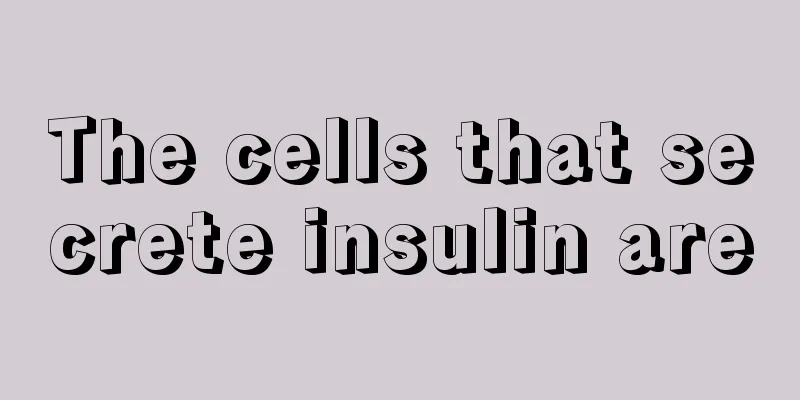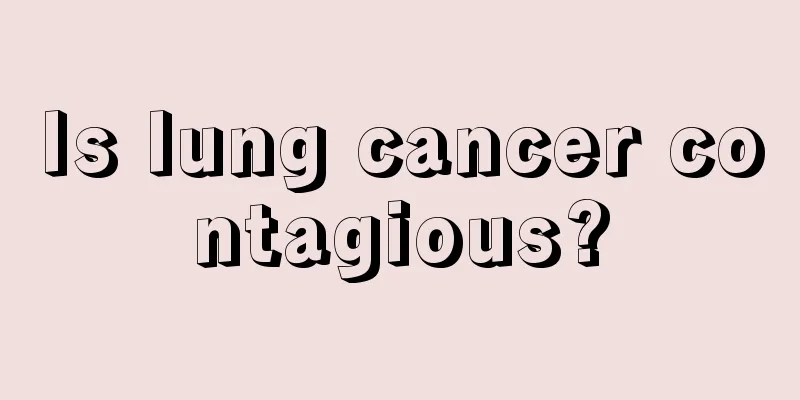The cells that secrete insulin are

|
The secretion of insulin is actually carried out by the islet cells in the pancreas. Insulin is a hormone in the body that lowers blood sugar and plays a vital role in the balance of the body's internal environment. If the body's protein intake increases, the insulin secreted by pancreatic cells will also increase. Insulin is a protein hormone secreted by pancreatic beta cells in the pancreas in response to endogenous or exogenous substances such as glucose, lactose, ribose, arginine, glucagon, etc. Insulin is the only hormone in the body that lowers blood sugar, while promoting the synthesis of glycogen, fat and protein. Exogenous insulin is mainly used to treat diabetes. secretion The rate of insulin biosynthesis is affected by plasma glucose concentration. When blood glucose concentration increases, the proinsulin content in β cells increases and insulin synthesis accelerates. Insulin is synthesized in the pancreatic β cells. Insulin has a molecular weight of 5700 and is composed of two amino acid peptide chains. The A chain has 21 amino acids and the B chain has 30 amino acids. There are two disulfide bonds between the AB chains. Insulin and C-peptide are secreted into the blood in equal molecules. Patients who are clinically treated with insulin have insulin antibodies in their serum, which affect the determination of blood insulin levels by radioimmunoassay. In this case, the state of endogenous insulin secretion can be understood by measuring plasma C-peptide levels. Influencing factors The secretion of insulin in the body is mainly affected by the following factors: Stimulates insulin secretion Plasma glucose concentration Plasma glucose concentration is the most important factor affecting insulin secretion. Following oral or intravenous administration of glucose, insulin release occurs in a biphasic response. In the early rapid phase, insulin in portal vein plasma reaches its maximum value within 2 minutes and then drops rapidly; in the delayed slow phase, plasma insulin level gradually rises again after 10 minutes and continues for more than 1 hour. The early rapid phase shows the release of stored insulin triggered by glucose, and the delayed slow phase shows the synthesis of insulin and the conversion of proinsulin to insulin. After eating protein-rich foods, the amino acid concentration in the blood increases and insulin secretion also increases. Arginine, lysine, leucine and phenylalanine all have a strong effect in stimulating insulin secretion. The increase in gastrointestinal hormones after meals can promote insulin secretion. For example, gastrin, secretin, gastric inhibitory peptide, and intestinal vasoactive peptide all stimulate insulin secretion. The autonomic nervous system function state promotes insulin secretion when the vagus nerve is excited, and inhibits insulin secretion when the sympathetic nerve is excited. |
<<: Does the liver secrete bile?
>>: Regulation of insulin secretion
Recommend
Can nasopharyngeal cancer cause facial paralysis?
Can nasopharyngeal cancer cause facial paralysis?...
How to treat lymphangitis
Lymphangitis is a common clinical disease. It is ...
How to remove ballpoint pen marks from clothes
Drawing on clothes with a ballpoint pen is an ine...
What are the taboos of wearing agate?
Agate is a very common thing in life. Many people...
Evaporative cold water scale cleaning method
Nowadays, many businesses or shops in life use ev...
Why does drinking water make you gain weight?
Why do some people gain weight by drinking water?...
How long will it take for a glioma patient to die if he doesn't take medicine
How long will it take for glioma patients to die ...
What to do if blisters often appear on feet
Frequent blisters on the feet may be an important...
Dietary considerations for patients with esophageal cancer
The incidence of cancer in modern society is alre...
How to treat knee synovitis?
The legs are the most important part of the body ...
What are the sequelae of electric shock?
The convenience that the invention of electricity...
The "invisible killer" of liver cancer? These 3 are
Liver cancer is a terrible liver disease. In clin...
What are the treatments for nasopharyngeal carcinoma
In recent years, nasopharyngeal carcinoma has bec...
What is fibroid? Do you know these three types?
Fibromas are a type of tumor caused by the prolif...
Expert advice from regular glioma hospitals
The emergence of glioma has disrupted the good li...









